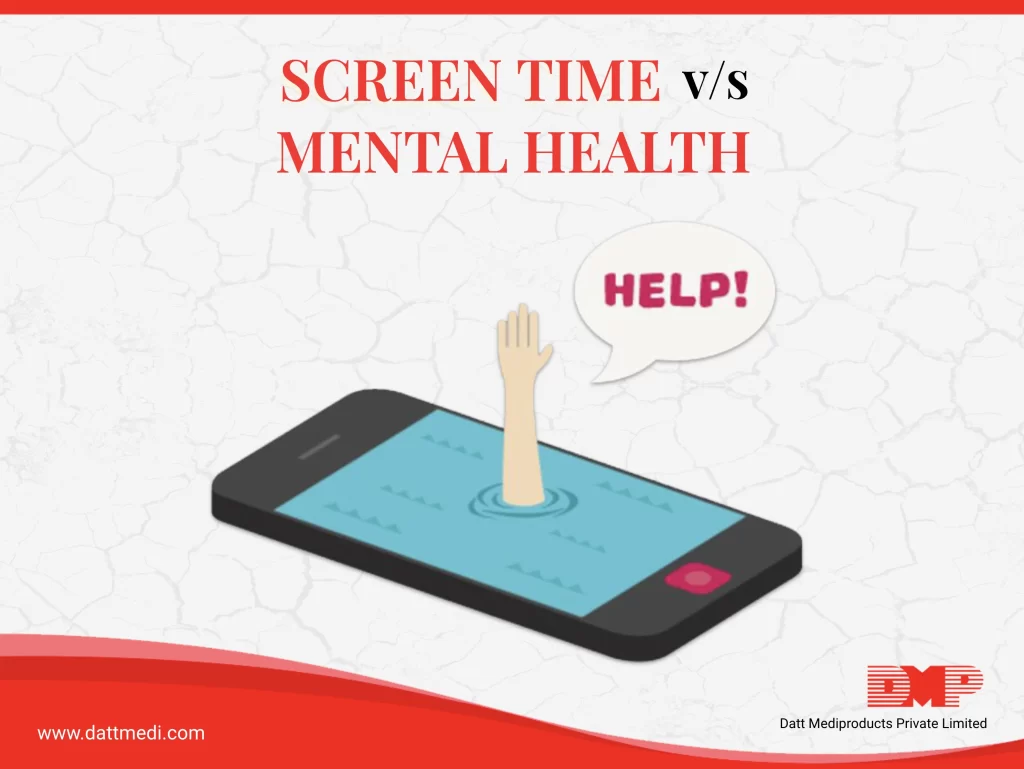
The ongoing covid-19 pandemic and technological advancements have led to an increased people’s engagement with screen-based devices and on the other hand, decreased their proximity to nature.
This combination of a higher screen time and a lower green time is associated with different psychological outcomes, in both adults and children. These outcomes may include not only the mental health, and cognitive functioning, but also academic achievements in children.
However, it is implied that higher screen time affects our mental health negatively. Several studies have been conducted to find an association between the two and results were found to be positive and negative.
The portable digital devices help enhance learning and building community on one hand and on the other they interfere with almost everything from sleep time to creativity.
In this blog, we are going to discuss a few of these aspects.
Screen Time & Sleep
An increased screen time may lead to a decreased sleep quality and duration. This may worsen many mental health conditions, including depression and anxiety. A study titled “Evening use of light-emitting eReaders negatively affects sleep, circadian timing, and next-morning alertness” published in the journal “Proceedings of the National Academy of Sciences of the United States of America” shows that the use of portable light-emitting devices immediately before bedtime can disrupt circadian rhythms and result in prolonged sleep deficiency, thereby, negatively impacting health, safety, and overall performance.
It is thereby recommended to turn off the light-emitting electronic devices at least 15-30 minutes prior to bedtime which may help ward off any negative effects of technology and screen use on sleep.
Screen Time & Self-Esteem
Social media acts as a glue keeping people stick to their smartphones. Although, it helps you to connect with your loved ones but contrarily offers you an easy way to compare yourself with celebrities and influencers. They appear to be living a picture-perfect life, and this comparison contributes to low self-esteem, negative self-talk, and body image issues. So, set a time limit and make wise choices.
Screen Time & Children
With the current ongoing pandemic, child education has gained a new dimension, from offline to online classes. Screen time for children has gone up drastically affecting their overall development. Studies show that long-term effects of screen addiction may range from speech delay, cognitive impairment, reduced creativity, difficulty in problem-solving, depression, anxiety, and poor physical activity even leading to weight issues and poor bone health.
There are certainly recommended timelines for children of different age groups. For example, only 1-hour screen time for children aged between 2 & 5 years old. Although there is no set limit of screen time for school-aged children, parents can set a limit for their kids. Being a role model can help too.
Screen Time & Depression
Over few years, several studies have examined the association between screen time and depression and concluded a positive correlation between the two. A population-based study published in the “Preventive Medicine Reports” reported that teenage kids with high screen time (7 hr+) were at a twice risk of being diagnosed with depression later in life as compared to kids with low screen time exposure (1hr/day).
Alternatively, children & adolescents who spent more time in greenness and outdoor activities were at a lower risk of developing depression later in life.
But, it’s not all bad news. Whether screen time benefits your mental health or harms it, depends on how you are using it. For instance, it becomes valuable if you use it to connect with family or access a medical resource.
Alternatively, it results in poor self-esteem when you start comparing your life with that of influencers. The mantra is to be mindful of the use of technology and manage screen time wisely. Follow us @dattmediproducts to stay updated on more such health facts and tips.




